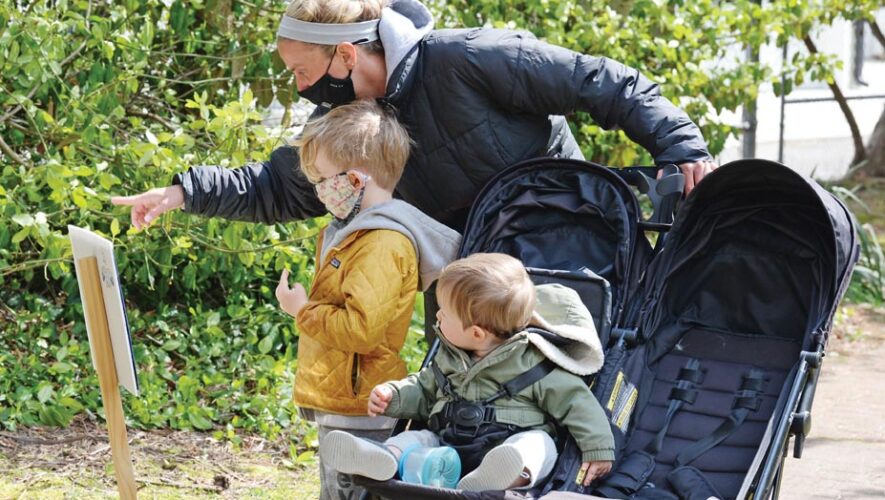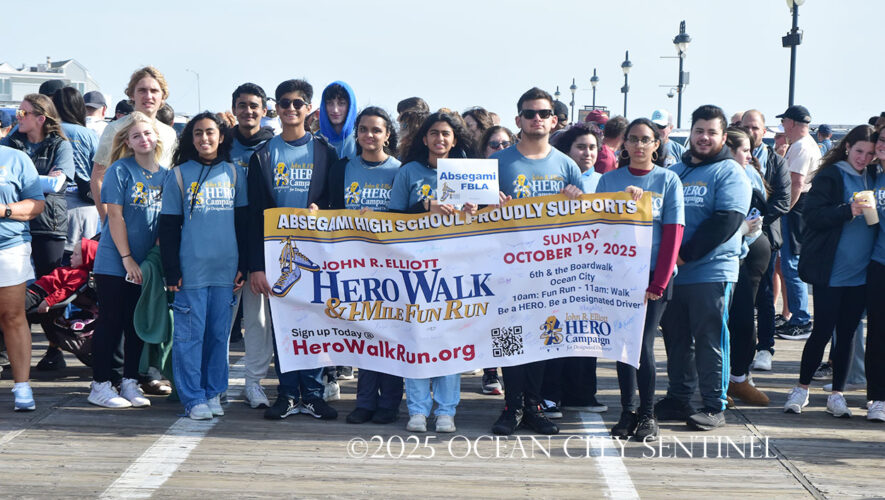NEWARK — U.S. Sens. Bob Menendez, a senior member of the Senate Finance Committee and one of the bipartisan bill negotiators, and Cory Booker, who was also involved in negotiations on the deal, detailed how New Jersey will initially benefit from the $2 trillion stimulus package Congress passed to respond to the COVID-19 pandemic.
Both senators voted in favor of the bipartisan deal and are committed to passing additional funding bills to address the ongoing health and economic crises.
“This package delivers an immediate shot in the arm for New Jersey’s hospitals and frontline health care workers, support for everyday New Jerseyans and small businesses to help weather the storm, and billions in aid to help our state and local communities deliver essential services and respond to the COVID-19 outbreak,” Menendez said. “To successfully combat the coronavirus, we need a seamless and coordinated federal, state and local response. I will continue to fight in Washington for the federal resources and guidance we need in New Jersey, and I am prepared to go back to Congress to deliver additional funding so long as the need persists.”
“This public health and economic crisis demands a massive and immediate federal response,” Booker said. “Though the challenges we face are far from over, the relief package Senator Menendez and I fought for will go a long way toward protecting our health and safety while helping families and small businesses in New Jersey and across our country stay afloat. But our work isn’t done yet. It’s critical that we continue bipartisan efforts to provide New Jersey hospitals, medical professionals, families and businesses the support they desperately need.”
Below is a breakdown of the funding. Please note that these numbers are best estimates by Menendez and Booker staff based on projections and existing funding formulas and are not final pending official allocation. State and local governments and individuals may still be eligible for additional assistance through various federal programs.
Help for workers
— Direct payments to 80 percent of New Jersey families. Over 92 percent of single tax filers and eight in 10 joint-filers in New Jersey will receive payments up to $1,200 for individuals earning less than $75,000 and $2,400 for couples earning less than $150,000, plus $500 per child.
— Expanded Unemployment Insurance. Increases the maximum unemployment benefit amount by $600 per week above one’s base unemployment compensation benefit through July and ensures that workers who are laid-off or out of work will receive, on average, close to their full pay for four months. It ensures that workers are protected whether they work for businesses small, medium or large, along with the self-employed independent contractors and workers in the gig economy.
— Fee Waiver for Withdrawal of Retirement Funds. Waives the additional 10 percent tax on early distributions from IRAs and defined contribution plans (such as 401(k) plans) in the case of coronavirus-eligible distributions of as much as $100,000, and may be re-contributed to the plan or IRA. Additionally, defined contribution plans are permitted to allow plan loans of as much as $100,000 and repayment of plan loans is extended for employees who are affected by the coronavirus.
Help for businesses
— As much as $10 million per business available to small businesses with fwer than 500 employees under the new Paycheck Protection Program. Loans are forgivable for payroll costs, mortgage interest payments, rent and utilities to keep struggling businesses afloat and workers employed. Loan payments would be deferred for six months.
— As much as $10,000 in SBA Emergency Grants for small businesses through the Economic Injury Disaster Loan (EIDL) program.
— Worker Retention Tax Credit. For employers, including nonprofits, whose operations have been fully or partially suspended, the bill provides a refundable payroll tax credit for a percentage of wages and compensation paid to eligible employees during the COVID-19 crisis.
— $1.25 million in funding from the Manufacturing Extension Program (MEP) to provide small and medium-sized manufacturers in New Jersey with resources to grow, reduce costs, improve efficiencies, develop their workforce, create new products, find new markets, etc.
— Temporary Suspension of Alcohol Taxes in the Emergency Production of Hand Sanitizer. Under present law, distilled spirits are generally subject to an excise tax of between $2.70 and $13.50 per proof gallon. This provision would exempt the tax on spirits removed during 2020 and used for the production of hand sanitizer in compliance with all FDA guidance.
Help for health care
— $100 billion in grants available for local hospitals, public entities, not-for-profit entities and Medicare and Medicaid enrolled suppliers and institutional providers to cover unreimbursed health care related expenses or lost revenues attributable to the public health emergency resulting from the coronavirus.
— At least $15.4 million funding from the Centers for Disease Control and Prevention (CDC) Public Health Emergency Preparedness fund to support New Jersey’s health system preparation for and response to the coronavirus. This can be used to fund personal protective equipment, laboratory testing to detect positive cases, infection control and mitigation at the local level to prevent the spread of the virus, and other public health preparedness and response activities. The state is still eligible to apply for additional funding from a separate $750 million fund.
— In addition to the $1.8 million recently distributed to New Jersey Federally Qualified Health Centers (FQHC) from a previous coronavirus relief package, millions of additional dollars are on the way for New Jersey’s health centers as the CARES Act includes an additional $1.32 billion for FQHCs.
Help for communities
— $3.44 billion from the COVID state fund to help New Jersey and local communities continue essential services as resources are being diverted to address the economic slowdown and COVID-19 response.
— $1.76 billion for NJ Transit from the $25 billion appropriated to help the nation’s transit systems.
— $53.5 million Community Development Block Grants (CDBG) to help communities fund infrastructure, economic development projects, public facilities installation, community centers, housing rehabilitation, public services, clearance/acquisition, microenterprise assistance, code enforcement, homeowner assistance, etc.
— $10.2 million funding to help New Jersey prepare for the 2020 election cycle, including to increase the ability to vote by mail, expand early voting and online registration, and increase the safety of voting in-person by providing additional voting facilities and more poll workers.
— Major Disaster Declaration allows New Jersey to apply for additional funding from the $45 billion FEMA Disaster Relief Fund to provide for the immediate needs of state, local, tribal and territorial governments, as well as private nonprofits performing critical and essential services, to protect citizens and help them recover from the overwhelming effects of COVID-19.
— $18.3 million Byrne-JAG grant funding for New Jersey to help state and local law enforcement and jails meet local needs, including the purchase of personal protective equipment (PPE) and other needed medical items.
— $70 million added funding for the Supplemental Nutrition Assistance Program (SNAP) to ensure everyone, including seniors and children, in New Jersey receive the food they need.
Help for housing
— $53 million Emergency Solutions Grants to help New Jerseyans experiencing homelessness.
— $12.363 million Low-Income Home Energy Assistance Program funding to help low-income families and seniors offset home heating, cooling and other energy costs.
— $1.7 million Housing Opportunities for Persons with AIDS to benefit low-income persons living with HIV/AIDS.
— Up to one-year forbearance on all federally backed mortgages.
— 60-day foreclosure and eviction moratorium on all federally backed mortgages.
— 90-day forbearance on federally backed loans for owners of multifamily rental properties, during which period they may not evict or charge late fees or other penalties to tenants for nonpayment of rent.
— 120-day eviction protection for tenants. Owners of federally subsidized properties or properties with a federally backed mortgage loan may not evict or charge penalties or fees to a tenant who cannot pay rent for 120 days following this act.
Help for schools
— $310 million to support New Jersey’s K-12 education that can be used to help educators and students transition on online and remote learning.
— $69 million for a Governor’s Emergency Education Relief Fund that Gov. Phil Murphy can use to provide support to school districts and institutions of higher education hardest hit by COVID-19.
— $1.15 million from the National Endowment for the Arts and the National Endowment for the Humanities.
— $62.6 million Child Care and Development Block Grants to help provide access to high-quality child care for frontline workers such as health care sector employees, emergency responders, sanitation workers and others deemed essential during the response to the coronavirus, and to provide continued payments to child care facilities that face closure or decreased enrollment due to COVID-19.


